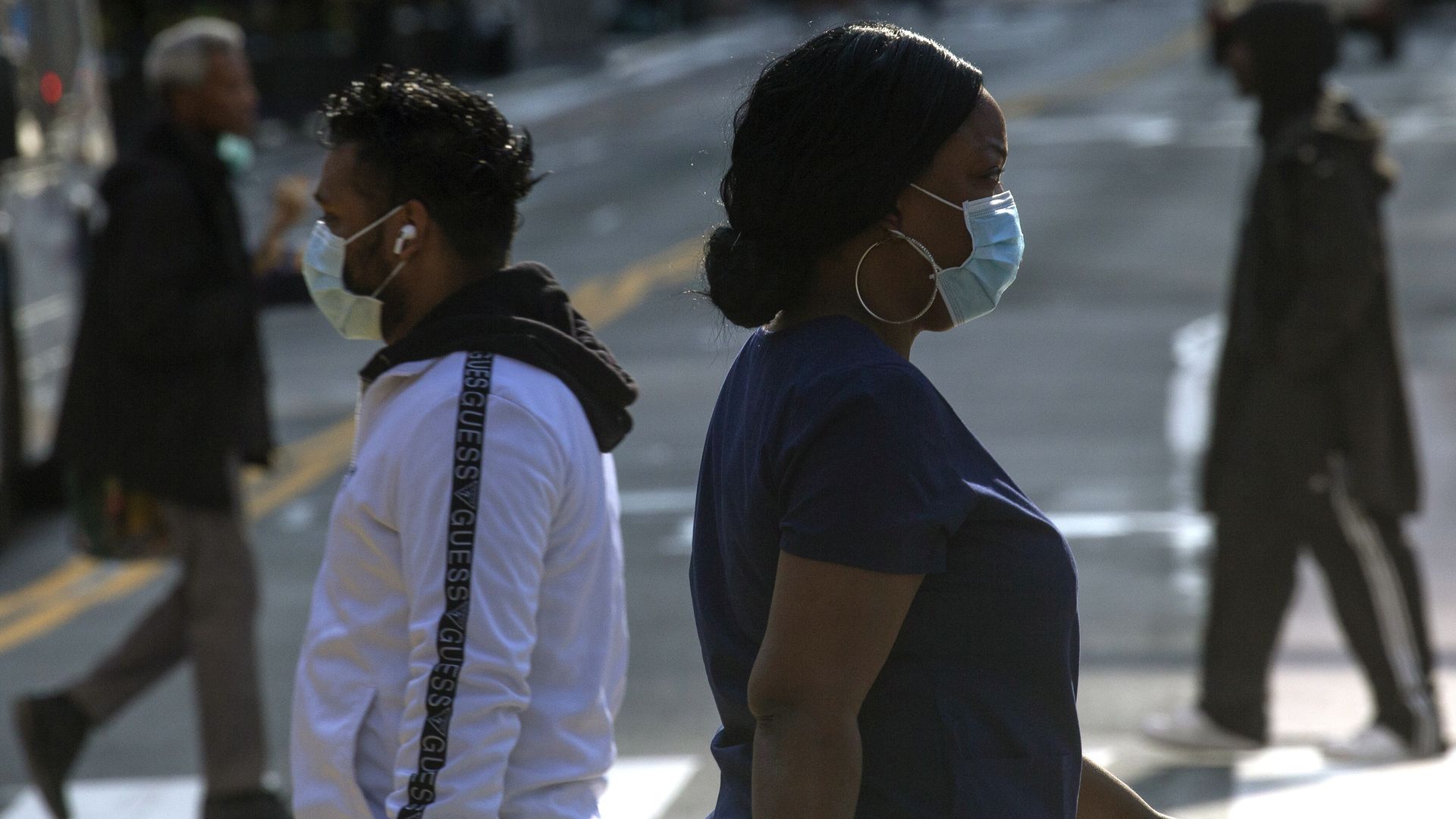Study finds link between air pollution and increased COVID-19 death rates
Add Axios as your preferred source to
see more of our stories on Google.

Photo: Kena Betancur/Getty Images
Coronavirus patients in more polluted parts of the United States are more likely to die from the illness than those in cleaner areas, according to a new Harvard University analysis of 3,080 counties across the country.
Why it matters: The study indicates a correlation between long-term exposure to air pollution and heightened death rates associated with the virus. Its findings could impact how medical resources necessary to respond to the virus are being distributed throughout the U.S., per the New York Times.
The big picture: The new analysis demonstrated that even slight increases in the level of particle pollution — much of which comes from fuel combustion, as well as indoor sources — had negative impacts associated with COVID-19.
By the numbers:
- Someone who has lived for decades in a county with such dangerous levels of pollution, called PM 2.5, is 15% more likely to die from the coronavirus than an individual in an area with one fewer unit of pollution from the particulate matter.
- Lowering the average particulate matter in Manhattan by a single unit over the last 20 years would have resulted in 248 fewer COVID-19 deaths to date, the study indicates.
How it works: To conduct the study, researchers collected data on particulate matter from more than 3,000 counties over the past 17 years. They compiled COVID-19 death statistics through April 4 from each county, using data from Johns Hopkins University's Center for Systems Science and Engineering.
- The researchers also conducted six secondary analyses to adjust for outside factors that could influence the results.
- The study will need to be confirmed by further analyses, since it can only determine a causal connection without examining individual patient data, its head researcher told the Times.
Our thought bubble via Axios' Amy Harder: Expect scrutiny of these links between air pollution and the pandemic to increase as President Trump continues to curtail pollution standards, including last week's rollback of auto efficiency standards.
The bottom line: “The study results underscore the importance of continuing to enforce existing air pollution regulations to protect human health both during and after the COVID-19 crisis,” the research said.
Go deeper: How climate change and wildlife influence the coronavirus
